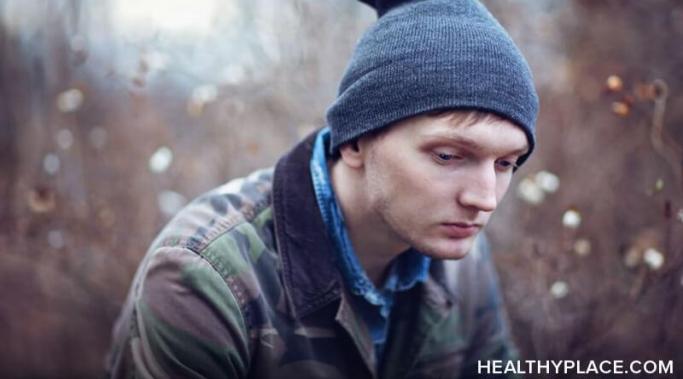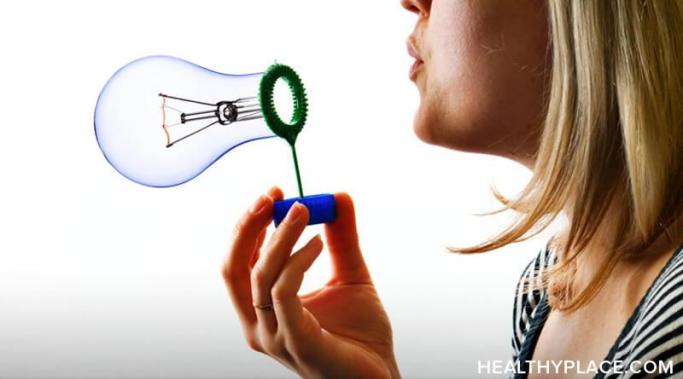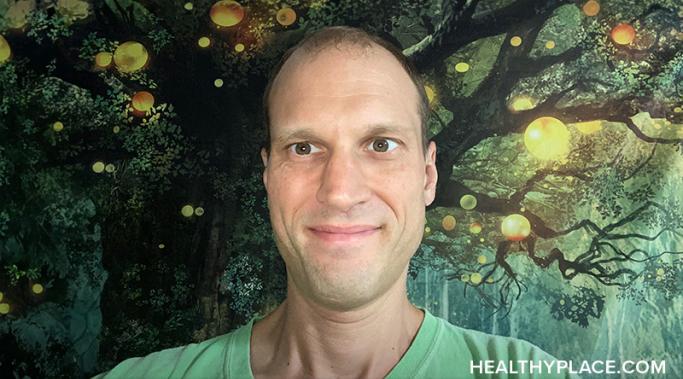Blogs
It's so often the case that a doctor won't listen to you. I've had it happen over and over and over again. Some doctors are worse than others, of course, but it feels like they all do it on some level. I know they use their clinical judgment to assess whatever you say in an appointment, but still, it's no fun when a doctor won't listen to you.
Did you know there are warning signs of a setback in mental illness recovery? This is important to know because recovering from mental illness is not linear. I've heard that often and for a good reason. It's true; recovery is far from linear. I've faced many obstacles, bumps, and slow-downs in my own journey, and often, I didn't realize that I had begun slipping until I was already in a tough spot. It's easier to catch myself slipping and then change directions than to find myself in these slumps, so I've found it helpful to identify my own warning signs of a setback in mental health recovery.
I work to cultivate my strengths, as living with a mental health diagnosis can present unique challenges to one's self-esteem and overall wellbeing. I know the internal struggles with stigma, self-doubt, and societal expectations can often overshadow my sense of self-worth. However, there is a powerful approach that can help rebuild and enhance self-esteem: focusing on and cultivating one's strengths.
While suicidality is often driven, at least in part, by lifestyle factors, a person with a good life can still be suicidal. This doesn't make sense to many people. How can someone with an objectively good life feel like they want to die? The answer to that is simple and complex. A person with a good life can be suicidal because of the brain.
Recently, I was concerned that the effects of verbal abuse had damaged me. This revelation came to me after watching "Barbie." The more I talked to others about this film, the more I realized I was one of the few people who didn't cry during the show. Is it because I'm damaged from verbal abuse?
There are innovations in the treatment and prevention of gambling addiction. As a recovering gambling addict, I spend much of my time finding ways to make the journey easier and more fulfilling for myself and others. I also spend significant time looking into ways to avoid falling back into old habits. But, new gambling trends aside, I’m happy to say that technological advancement has brought new treatment and preventative strategies for gambling addicts.
My name is Sean Gunderson, and I am the new author of "Building Self-Esteem." I am optimistic to begin writing for HealthyPlace. I hope that my unique lived experiences, along with my engaging personality, will help make my blog a place that you turn to for ideas and support in your life’s journey. In my own life’s journey, I have come to realize the importance of self-esteem and have learned how to cultivate it effectively.
Psychiatric advance directives are not something people talk about enough. Psychiatric medication has saved my life and helped me to function and participate in events and daily activities that I wouldn't be able to do without it. It also saved my marriage and allowed me to have successful relationships with friends and family. I believe my medication is why I do as well as I do (which isn't always great, but I have joy-filled days and many accomplishments that I can be proud of, given limitations). I want to communicate these things to doctors because medication is necessary for my treatment. I can do this by formulating a psychiatric advance directive.
Emotional resilience when a relationship ends is important if challenging. As someone with borderline personality disorder (BPD), the ending of relationships feels no short of an existential nightmare. The grief isn't just about losing someone; it's about losing the version of me that I molded to fit within that love story. Post-breakup, I feel like I'm looking at my reflection in a funhouse mirror. What stares back is distorted, confusing, and sometimes downright unrecognizable.
Have you ever wondered about repeat offenders? It is not uncommon to hear about folks who get in legal trouble for using drugs or alcohol, and instead of remaining sober, they go back out and use again. It is difficult to understand how someone can keep engaging in the same behavior after losing everything. Repeat offenders are often called selfish and ungrateful. But what if the opposite is true? What if repeat offenders need compassion just like everyone else?










Also, abuse is wrong, and in order for it to be abuse means there is automatically someone on the receiving end who doesn’t deserve it, which is what is called a victim. In actuality, you can be both a victim AND a survivor AT THE SAME TIME.
I am interested in a lot of the topics available on this site, but this article honestly makes me question how ignorant and untruthful/misrepresenting other articles on this site might be. This article betrays credibility for the site as a whole. Might want to consider that. Especially with both disability AND domestic violence being on the rise…this article is only going to get more and more negative feedback over time.